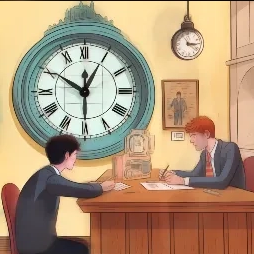Contents
A councillor is a member of a “board of directors”
Councillors provide input and give final approval to council policies, and the council’s annual budget.
Councillors should not direct staff. Operational matters should be raised directly with the CEO.

Councillors are elected by the public and are expected to listen to residents, weigh up different sides of a proposal and then make decisions on behalf of their constituents. Councillors can advise on the best way to resolve an issue or achieve something.
A councillor does not have a “boss” in the traditional sense. Councillors are expected to do a good job, otherwise they will be voted out at the next election. Councillors must comply with the code of conduct and legislation.
A councillor represents the community
Councillors are invited to attend local events and community group functions. (I receive feedback & new ideas).
How much time is required to be a councillor?

There is one important council meeting per week for around four hours. Councillors should read the meeting agenda before the council meeting. There are two types of meetings:
briefing meetings – conducted in private; proposals presented by council officers; initial discussion and information; attempts to see if broad consensus can be reached on proposed changes.
ordinary council meetings – open to the public, have a formal meeting and debating procedure, and motions are voted on. Final decisions (known as “resolutions”) are made.
Many councillors fit their councillor duties around their full-time job.
I find that on average, councillors dedicate 10 to 15 hours per week, however, this is highly variable and dependent on the commitment and circumstances of the individual.
Council staff support councillors’ queries or requests. If you can get someone else to do something, delegate it whenever possible.
Working as a team
A councillor can do little as an individual to decide policy and budget changes of the council. It requires a majority of councillors to finalise a decision.
An effective councillor convinces the other councillors about the merits of a proposal (known as a “motion” at a council meeting).
How much does a councillor get paid?
A councillor in a large council receives a taxable allowance of around $35,000 per year.
A councillor is provided with the necessary work equipment, such as a phone and computer.
A councillor can claim work-related expenses.
My experience as a councillor
Policy
You should try to contribute to all policy areas of the council, but you also can pursue policy areas you believe are important.
Budget
The annual council budget is important, as it decides funding for each area of the council. Budget preparation is coordinated by the chief financial officer. The draft budget is then discussed, debated and finally decided by a vote of councillors in a public council meeting.
Skills required
It requires different skills to be a good councillor:

Questions and answers
Does a councillor receive a lot of complaints?
Not many. I receive an average of one phone call per week.
Most residents are polite and reasonable. Also, I’ve found when I explain the context behind a particular situation, the conversation remains civil even if the resident disagrees.
At times you will receive a lot of phone calls, emails and text messages when there is a particular issue that is running hot and coming up for decision at a council meeting.
Is there a minimum education qualification?
There are no formal education requirements. Upon election, councillors receive induction training in planning laws, media, and meeting procedures.
Do I need to know a lot about council before I run?
You should have an idea of what you might be getting yourself into, but I don’t think you need to study all the details of the council policies and regulations before you run for election. You should prioritise your time on getting elected. You should know the campaign regulations such as authorising marketing material and donation declaration.
Campaigning
Target market
Most voters will not spend a lot of time going through all the particular details of each candidate, including their policy proposals.
Most voters want a council that delivers efficient key services with low rates. They don’t want a council that is distracted by non-council issues.
Methods
Ballot pack submission
This is the most critical thing to get right, as this is looked at by the majority of voters.
Photo is passport photo size, but make sure it doesn’t look as bad as a passport photo. It must be appealing. Appear competent and dependable, and a “safe pair of hands”.
Candidate statement is 300 words of text. Structured, language to the point and not too discursive. You can have a “Call to action” at the end of your text, for example, “Vote 1 for Sean for efficient council services.”

Social media (organic and paid)
Organic social media is what most people do, where a post appears in the news feed on people that have “liked” your page, or friends of friends.
Paid social media posts are where you pay for a “sponsored ad” to appear in the news feed or video stream of people you target by postcode. This is more effective for campaigning, as you are reaching people that don’t know you yet.
The two forms of social media that are most effective for the general population are Facebook and YouTube.
I recommend creating a separate page. This keeps your council campaign separate from your personal Facebook account. You can invite all your Facebook friends to like your campaign page. Having a campaign page allows anyone to follow the page without you having to confirm they are a friend.
Start a separate linked account to keep things separate from your personal YouTube account.
Reference
Paper-based advertising materials
A4 or DL leaflets: Create your content in Microsoft Word, then have a graphic designer (there are low-cost online services) spruce it up. DL size leaflets are the size of a long envelope and are easier to fit in letterboxes.

When you register as a candidate, you are given the voters roll in an electronic format that can be used to generate personally addressed letters. These are more likely to be read than leaflets. They require more care to letterbox than leaflets. You will require the services of a mailing house to produce the letters.
Garden boards
You can ask friends and supporters to erect a sign made of corflute that you will supply to them. This is best in highly visible locations.

Street stalls
Stand outside high foot-traffic areas and hand out leaflets. Have a notebook or clipboard handy to record residents’ details if you need to get back to them.
Local newspapers
If there are particular issues you think should be highlighted, email your local newspaper with the story. Try to make the story unique and something that will interest the general public. You don’t have to format this as a formal “press release”. You can include “quotes” or statements from yourself regarding your opinion on the issue. If the newspaper decides to run the story, the newspaper will arrange for a photo to be taken by a professional photographer.
Doorknocking
Doorknocking is known as one of the most effective vote-winning activities. It is also the most time-intensive, as you can only reach a small number of voters per hour. Doorknocking should only be done once you have all the other campaign activities well in hand.
Execution
Have you ever run a marketing campaign across tens of thousands of households?
Start early, because as the campaign heats up you’ll wish you had more time. You can have 90% of the campaign prepared before the start of the campaign period.
Have a plan on a calendar. Budget your campaign costs.
Don’t introduce new campaign activities late in the campaign before all the most important campaign activities are taken care of.
Don’t focus too much on getting votes one-by-one. You may get phone calls from voters asking you to assist them in filling out their ballot or following up on their detailed questions. You must be unforgiving with your time, and ensure that the most efficient activities that will gain the most votes are planned, resourced and executed.
The time will zoom up twice as fast as you think it will. The first decision is the best when you are pressed for time.
Preferences
Preferences are used when candidates do not receive enough primary votes (Number 1s) to be elected outright.
Getting a high preference, or doing deals with other candidates regarding which number you are on their How-To-Vote (HTV) Card is now less important as:
- Handing HTV cards to voters is particularly important during attendance elections. All local government elections in Victoria are now postal; and
- HTV preferences are no longer published with the ballot papers; and
- Most voters number the ballot without following an HTV card.
There is a percentage of voters that like to use a candidate’s HTV preference order. Candidates’ recommended HTV may influence these voters if a candidate puts a HTV preference order in a leaflet that they letterbox or online.
Will you win?
In order to win, you need two things to happen:
- Run a well executed campaign yourself; and
- Your competitors run a less effective campaign than you.
The first aspect you can control, the second aspect you can’t control. You’re running a race and not able to see how well the other runners are doing until the race has finished.
